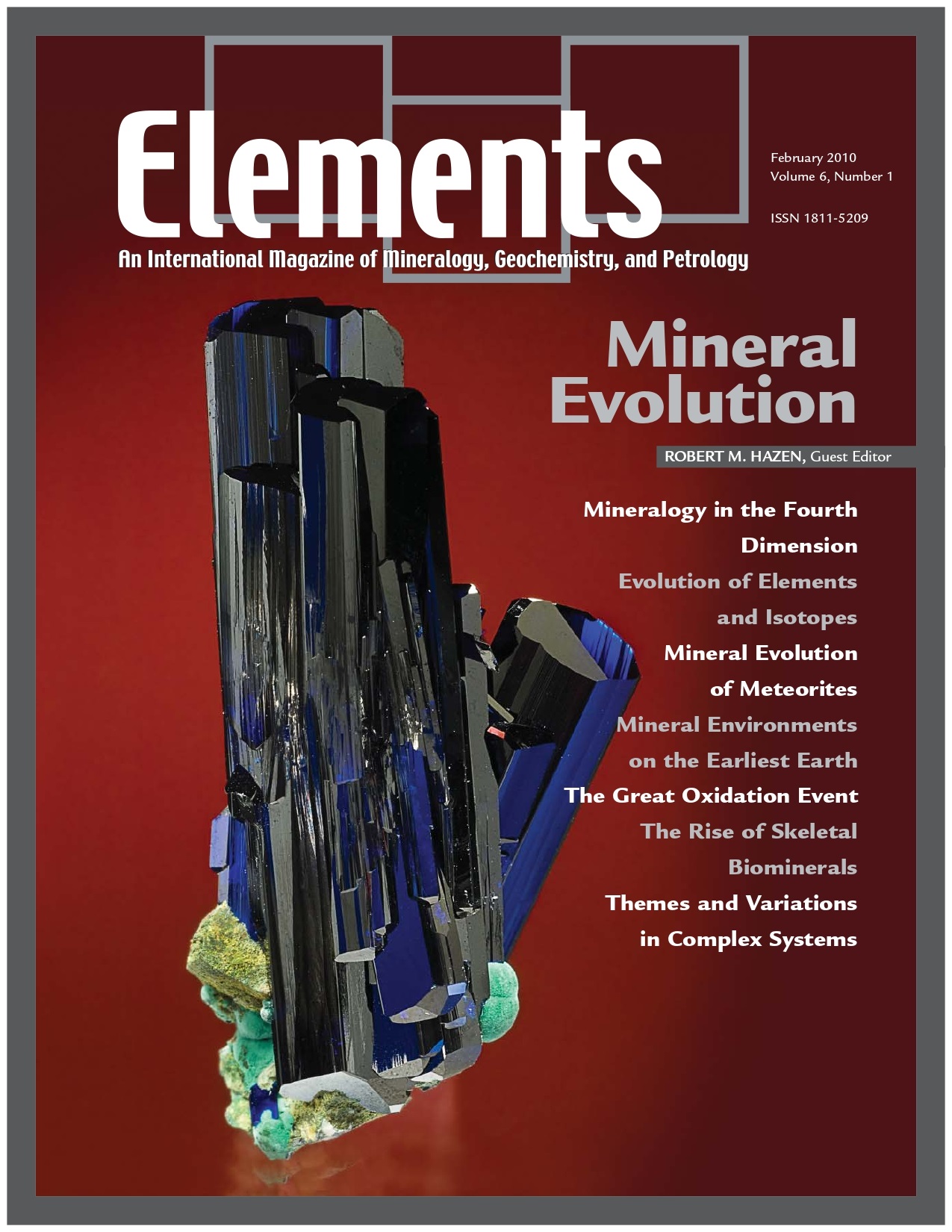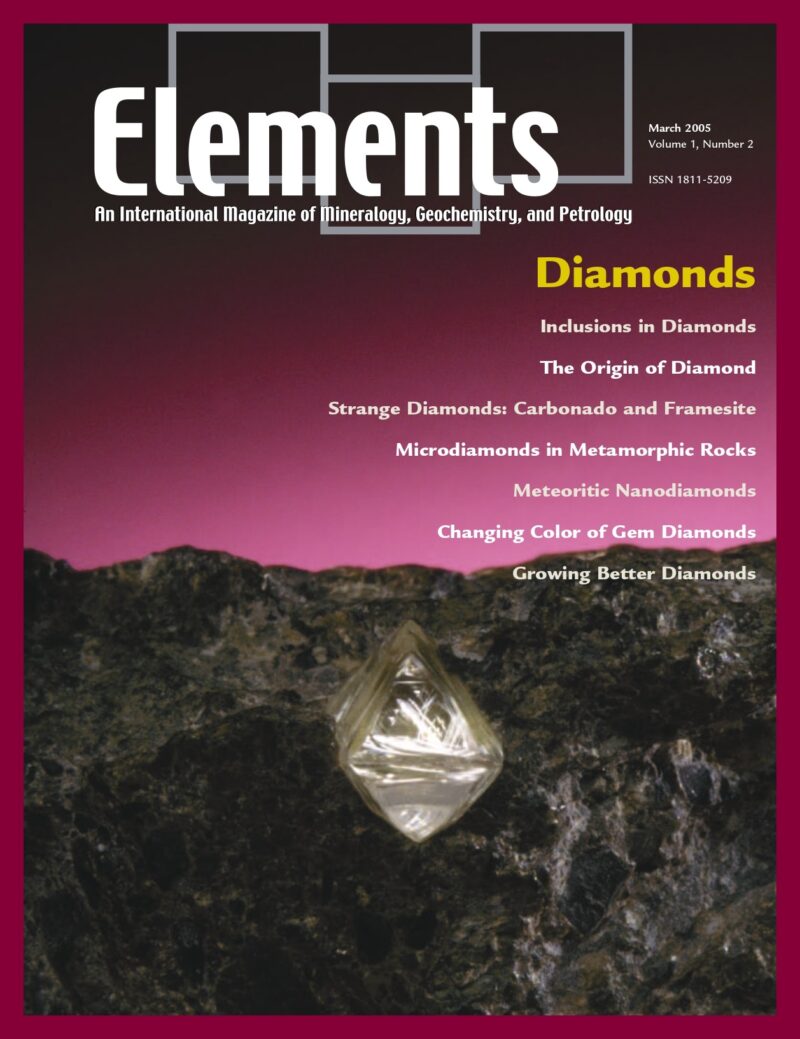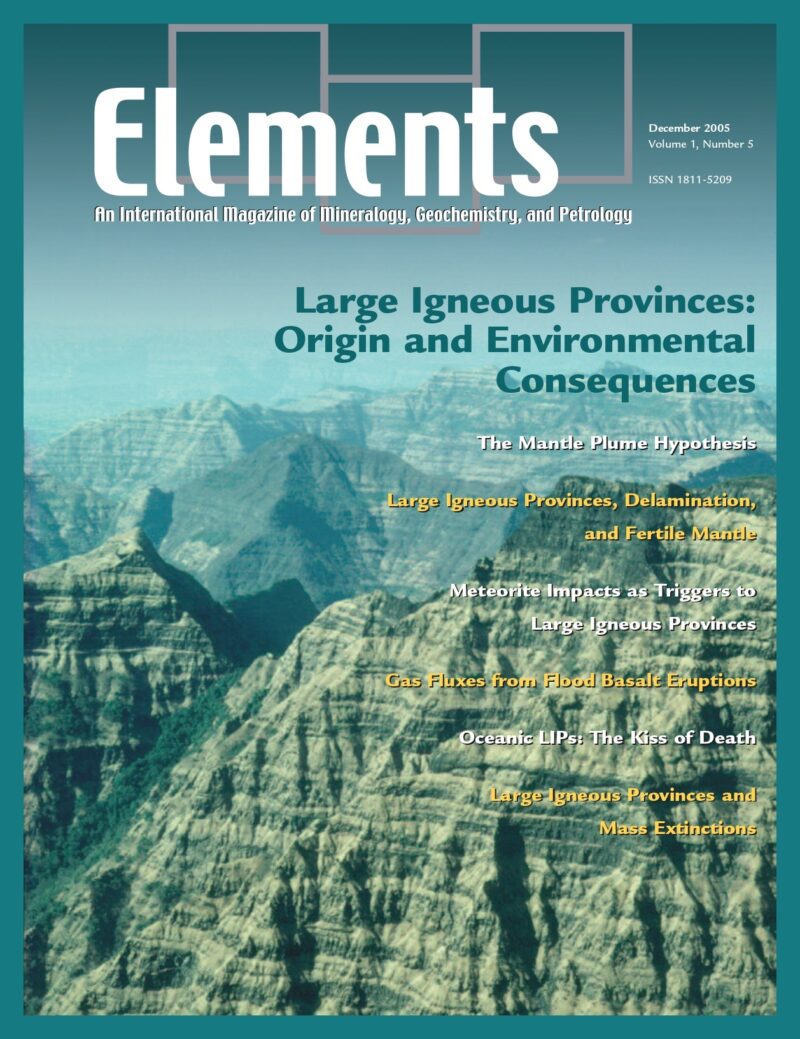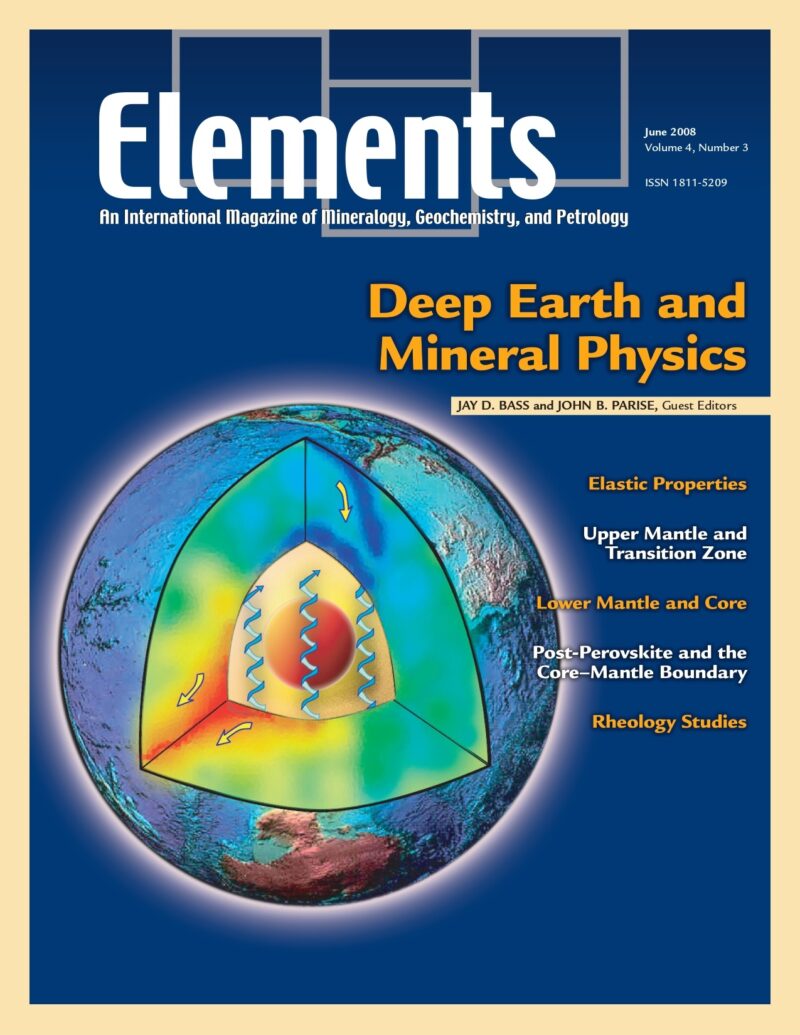
Bentonites – Versatile Clays, April 2009, Vol. 5, No. 2
June 28, 2024
Cosmochemistry, February 2011, Vol. 7, No. 1
June 28, 2024Mineral Evolution, February 2010, Vol. 6, No. 1
$20.00
“Mineral evolution,” the study of Earth’s changing near-surface mineralogy, frames Earth materials research with a historical narrative. This 4.
Mineral Evolution
February 2010, Vol. 6, No. 1
“Mineral evolution,” the study of Earth’s changing near-surface mineralogy, frames Earth materials research with a historical narrative. This 4.5-billion-year story integrates themes of planetary science, including geodynamics, petrology, geochemistry, thermodynamics, geobiology, and more. Mineralogy thus holds the key to unlocking our planet’s history and assumes its rightful central role in the Earth sciences. The mineralogy of terrestrial planets evolves as a consequence of physical, chemical, and biological processes. Starting with ~12 refractory minerals in prestellar molecular clouds, processes in the solar nebula led to the ~250 different minerals found in meteorites. Initial mineral evolution of Earth’s crust depended on a sequence of geochemical and petrologic processes that resulted in an estimated 1500 different mineral species. Ultimately, biological processes produced large-scale changes in atmospheric and ocean chemistry that may be responsible, directly or indirectly, for most of Earth’s 4400 known mineral species. Mineral evolution thus highlights the coevolution of the geo and biospheres.
Why You’ll Love Elements Magazine:
- Expert Contributors: Articles written by renowned researchers in the field of geoscience.
- Engaging Content: Join a community of readers who are passionate about Elements.
- Exceptional Quality: Each issue is printed on high-quality paper with stunning visuals and detailed illustrations that bring complex scientific concepts to life.
Order your copy of the February 2010 issue of Elements magazine today and learn about mineral evolution.
Related products
-
Diamonds, March 2005, Vol. 1, No. 2
$20.00Diamond, the fascinating ultrahard mineral, is the focus of considerable interest and scientific research. Recent advances particularly relevant to geoscientists include: diamond as a recorder of Earth processes from the perspective of inclusions, chemistry, and conditions of formation; synthesis for research applications and processing to modify color and physical properties, important to diamond gems and anvils; the implications of nanodiamonds from meteorites.
-
Large Igneous Provinces: Origin And Environmental Consequences, December 2005, Vol. 1, No. 5
$20.00Large igneous provinces record major outpourings of igneous rocks, both on the continents and in ocean basins. Their origin is still vigorously disputed, with models invoking mantle plumes, thermal effects of the lithosphere, and meteorite impacts.
-
Deep Earth And Mineral Physics, June 2008, Vol. 4, No. 3
$20.00The field of high-pressure mineral physics is central to our understanding of the Earth’s interior and its evolution. It is also a field that is rapidly advancing.




